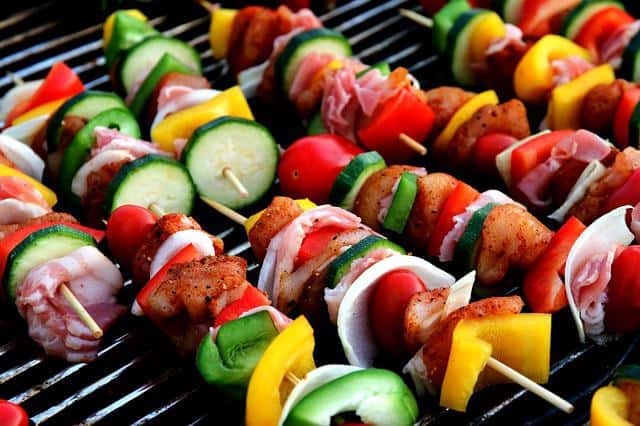Every day what we choose to eat is very important, mainly because it fuels our bodies. However, what if we told you it was even more important to consider how that fuel is prepared? There are four general food safety rules that are important to follow, especially as we head to family barbecues and beach cookouts. So before you fire up the grill this holiday weekend, be sure to follow these four simple steps.
Clean: Any object touching the food should not be an agent of contamination. This includes our hands alongside any plates, cutting boards, utensils, pots or pans!
- Be sure to always wash your hands thoroughly before starting to prepare your food. Lather and scrub with soap and water before rinsing and wiping your hands dry.
- If you are chopping any meat or poultry, wash the knife and utensils with soap and hot water before and after use.
- Countertops and cutting boards can harbor old bacteria if not wiped properly; always remember to clean your surfaces before using them.
Separate: Take extra precaution to keep raw foods and cooked foods separated.
- Raw meat, poultry, seafood and eggs have natural bacteria that may cause food poisoning when mixed with vegetables or already-cooked foods. This can cause bacteria from raw foods to transfer where they do not belong.
- Remember your surfaces! Do not put cooked foods on surfaces where raw foods have been.
Cook: Temperature is key! Many harmful bacteria are not killed unless subjected to particular high temperatures.
- Invest in a food thermometer! To safely cook your food make sure you know the correct temperature it needs to be cooked to. Raw seafood tends to have a lower temperature needed to cook fully than raw beef, pork or chicken.
- If cooking with a microwave, understand that every microwave is not the same. Check your microwave’s settings to ensure it is operating at the appropriate intensity for the particular food.
- If your food packaging does not indicate the threshold temperature, check the websites of the FDA or CDC for a list of accurate values.
Chill: In general, the colder the temperature, the slower dangerous bacteria can multiply. To preserve your cooked foods, it is important to refrigerate or freeze them. This immobilizes the bacteria, protecting your food from spoiling.
What can happen when these general guidelines are not followed?
Foodborne illnesses are as deadly as they are simply uncomfortable. Some common bacteria that cause foodborne illnesses in the United States include, but are not limited to, Salmonella, Norovirus, Listeria and E.Coli. The more well-known reaction to infection is various forms of gastrointestinal discomfort for 24-48 hours or more. However, vulnerable populations (such as children, senior citizens and the immune compromised) are at even greater risk of permanent injury or even death due to a foodborne illness.
Though the disease will primarily affect the digestive system, every individual is different. No one is certain of how badly a particular bacteria will affect their wellbeing. This is why it is important to understand the general symptoms of food poisoning and when it is necessary to contact a physician.
Common symptoms of food poisoning include:
- Stomach Cramps
- Nausea
- Vomiting
- Diarrhea
- Fever
When To Call A Medical Professional
- Dry Mouth and Dizziness: When dealing with diarrhea and vomiting, a lot of fluid is being eliminated from your body. If you are unable to replenish your liquids through hydration, you may become dangerously dehydrated. This is often experienced through headache, dizziness, dry throat and dry mouth.
- Bloody Diarrhea: If you see blood in your stool or diarrhea, this could indicate internal bleeding and damage to the lining of the intestines or stomach. This would need immediate evaluation.
- A Dangerously High Fever: If your temperature is more than 101 degrees, then you should see a physician. The physician will try to either eliminate a possible infection through antibiotics or prevent any further infection or inflammation.
We hope that your summer is full of fun, fresh air, and plenty of delicious food. But if you find yourself with food poisoning, we’re here to help!




